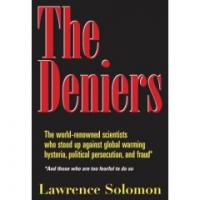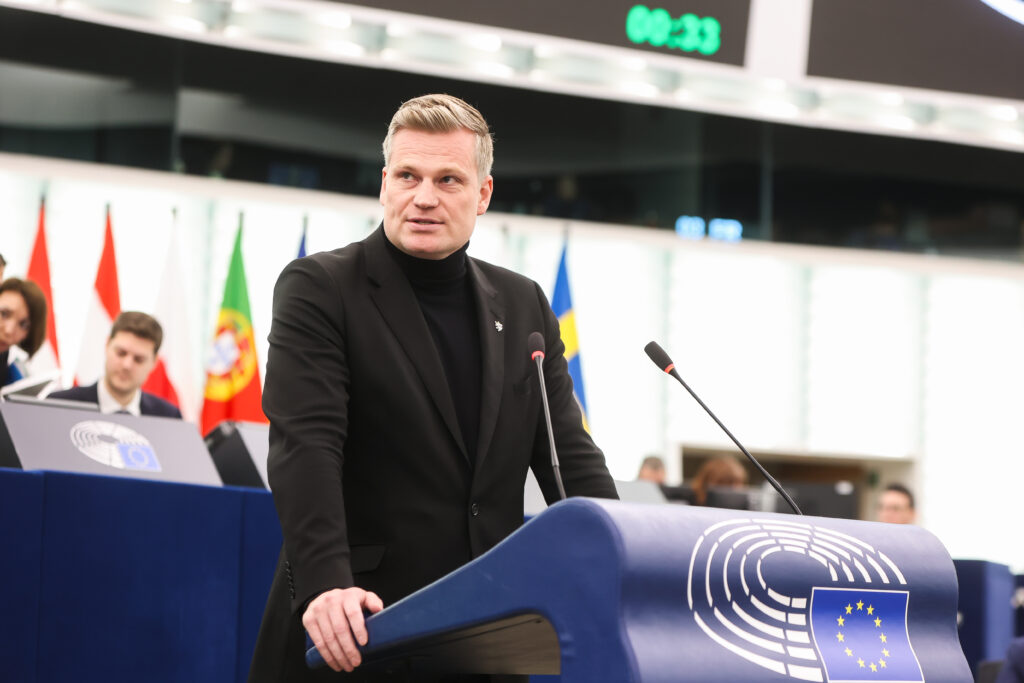Solomon’s New Book Full of Hysteria, (Imagined) Persecution, and Fraud
Despite the uncertainties, there is general agreement that the observed warming is real and particularly strong within the past 20 years.
Climate Change Science: An Analysis of Some Key Questions
National Academy of Sciences, 2001
I am afraid you won’t find that quote in within the pages of Lawrence Solomon’s new book, The Deniers: The World-Renowned Scientists Who Stood Up Against Global Warming Hysteria, Political Persecution, and Fraud (and those who are too fearful to do so).
Nope, as the world’s longest book title suggests, Solomon is not the least interested in considering a climate consensus – and if that means that he has to cherry-pick quotes, misrepresent data, cut off graphs before their curves become inconvenient and blithely ignore the logical inconsistencies in his own arguments, well, Solomon seems not to mind.
In fairness, though, he comes clean very early in the book (on Page 6, actually) and admits that the whole exercise is a parlor game, a work of sophistry. It all began because he was trying to impress some visiting Chinese environmentalists with the vigor of the environmental debate in North America. So he challenged a friend to “name three climate-change areas that he felt were settled. … I told him if he identified the areas of expertise, I would find a credible dissenting scientist in each.”
Though I can’t believe anyone would have set up some of the silly points Solomon examines as the most settled in climate science, Solomon set off nevertheless to find any dissent and to write about his findings in a periodic column in the National Post. He later parlayed that series into this book.
The problem is that Solomon’s “deniers” don’t actually deny climate change. They quibble about the details. They criticize Michael Mann’s now entirely dated hockey stick graph. They argue about snow temperatures in Antarctica, but they all still allow – what’s the phrase? – that observed warming is real and particularly strong in the last 20 years.
Solomon even says so. He says that while reflecting on his own research, “I … noticed something striking about my growing cast of deniers. None of them were deniers.”
If you ask me how someone could make that concession on page 45 and then string the book out to page 213 (not counting footnotes), I have to say that I am still suffering some confusion. And all of it intentional, I am convinced.
Solomon has rounded up the usual suspects and reveled in the usual arguments. He has cherry-picked quotes like this, from the above-reference National Academy of Sciences report:
“Because there is considerable uncertainty in current understanding of how the climate system varies naturally and reacts to emissions of greenhouse gases and aerosols, current estimates of the magnitude of future warming should be regarded as tentative and subject to future adjustments (either upward or downward).”
Fair enough, the magnitude (if not the inevitability) of future warming is debatable. But Solomon follows that quote with this hysterical analysis:
“The press’s spin? CNN, in language typical of other reportage, stated that it (the National Academy of Sciences report) represented ‘a unanimous decision that global warming is real, is getting worse, and is due to man. There is no wiggle room.’”
Click on the link at the top and I think you’ll find that CNN’s reporting was accurate. “Real and getting worse” was the conclusion that was reported to President George W. Bush at the time, and while the White House was officially unhappy, they didn’t challenge the finding.
But Solomon does. Using graphs that tend to end between 1980 and 2000, and throwing his lot in with the likes of Bob (Global-Warming-Ended-in-1998) Carter, Solomon adds brick upon brick to what remains a very low wall separating the purveyors of doubt from an overwhelming tide of agreement.
But, again, Solomon doesn’t make excuses for creating a phony balance between his handful of quibblers and the overwhelming scientific concern about climate change. He says: “… our job is not to settle which side is right but simply to demonstrate that there is a debate, a vigorous and serious one.”
So, he quotes Carter saying this: “There is almost universal agreement (my emphasis) that significant carbon dioxide increases – human caused or otherwise – will cause gentle* planetary warming.”
And, then later, Solomon concludes, “… our mission is accomplished. Knowing what we know now it is not possible to believe that the science is settled or that there is a scientific “consensus” for the doomsayer view of global warming.”
The best part of Solomon’s book is the last chapter, in which he suddenly starts to make sense (not counting a bizarre analogy between economics and science).
First, Solomon explains his motive for clinging so desperately to some notion of doubt about climate change: he has spent most of his adult life as a self-styled environmentalist, campaigning against nuclear energy and against the ravages of big hydro electric projects. Once he brought it up, I started to remember the incredibly good work that his organization, Energy Probe, did in the 1990s on the Three Gorges dam** in China.
Now, with fossil-fuel-sourced carbon dioxide identified as the overarching environmental threat, nuclear and mega-hydro projects are back on the front burner. Even people who consider themselves ardent environmentalists – frontrunners in the vegan Birkenstock crowd – are looking at those alternatives with a more open mind. And Solomon’s life work seems to be slipping away.
You have to be sympathetic.
Solomon also makes some very good points about the fresh batch of stupid decisions that are being made or justified on the basis of climate change. His attack on bio-fuels seems entirely reasonable. His condemnation of carbon credit trading scams is equally defensible. And his oddly contrarian call for the removal of “all the overt and hidden subsidies to road users, industries, and energy producers” is downright laudable.
That said, this book is nothing more than a gift to the denial industry, a clumsy favor to the oil-entrenched lobbyists who will do anything to slow our response to an issue that has given rise to a very convincing consensus.
Solomon says there are quibblers. He’s right. The Intergovernmental Panel on Climate Change says there is a 90+ per cent possibility that global warming endangers the world as we know it. And on the central question, even Solomon’s selection of contrarian scientists won’t deny it.
If there is evidence of “fraud” in this book, it’s all in the title. Solomon should be a little embarrassed for having brought it up.
*Doesn’t Bob Carter’s use of the word “gentle planetary warming” make you feel better? And isn’t it creepy to think that a more honest sentence would have read, “gentle and cumulative planetary warming”?
** Solomon’s report of “fifty-meter-high waves” in the Three Gorges reservoir is, I have to assume, a typo.
Subscribe to our newsletter
Stay up to date with DeSmog news and alerts







